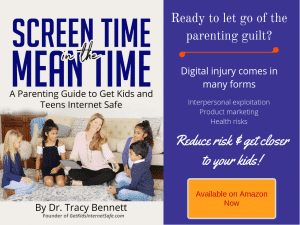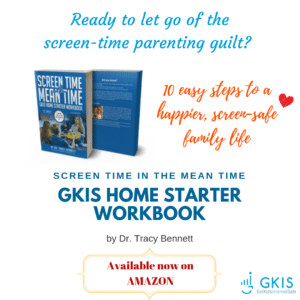
We believe we’re caught up with the dangers of internet usage and social media, but there’s a new shocking frenzy in town. Your child’s favorite TikTok users are writing to inmates, and your child may be considering it, too. We’re covering the start of the craze, the dangers of being a pen pal, and how to protect your child from these relationships. If protecting your child is one of your goals as a parent, take a look at our GKIS Social Media Readiness Course, a tool that helps you get your child “social” while avoiding digital injury.
The Beginning of the Inmate Pen-pal Craze
During the quarantine of 2020, TikTok users filmed their experience writing to inmates. These people used WriteAPrisoner, a website that lists inmate profiles that are seeking pen-pals. Users showed their friendships with inmates progressing from friends, best friends, and in most cases, romantic partners. TikTok users were intrigued by the idea, picked up their pen and papers, and started writing to inmates, too. Although the start of the craze was in 2020, teens everywhere are still writing.
TikTok user @jadalous2.0, aka Jade Chipps, has gained millions of views and over 300,000 followers from sharing her story. In some of her most popular videos, she shares that she used an inmate pen-pal website to write to potential suitors.[1] Jade shares that she started dating an inmate named Chris and married him after seven months of dating. Most of Jade’s comments come from young girls asking her advice on how to choose a good pen pal, what advice she has for those dating inmates, what site people should use to find their future partner and more.
Why is this so popular?
Our youth have proven their interest in true crime and the macabre over the past few years. We’ve seen a rise in the production of horror films, true crime documentaries, and even the romanticization of serial killers. We’re so much of a rise in interest that even teens on social media are creating fan accounts for their ‘favorite’ serial killers.
Serial killer films tend to remove the emotional aspect of the cases, such as grieving families, and focus on the quirks of the killer to pique interest. Therefore, we forget the gruesomeness and real-life impact these situations inflict on people, and we become desensitized to it. Once we’re desensitized, we see more intense thrills. Take a peek at our GKIS articles Does Social Media Promote Serial Killer Obsessions Through Murderer Fan Accounts? and Do Netflix Serial Killer Exposés Cause Kids to Romanticize Murderers? if you want to learn more about the shocking truth surrounding murderer glamorization. Writing to inmates is no exception to this normalization and we’re likely to see a bigger rise in these trends.

What is WriteAPrisoner?
WriteAPrisoner.com is a website that lists profiles for inmates who are seeking pen pals. Each profile displays an inmate’s name, gender, age, race, what crime they committed, and an ‘about me’ section where they can write whatever they want. Inmates’ addresses are also listed on the profile.
The website has filters that make it easy for users to narrow down a certain type of person they’re looking for. It also lets people see specific info like what inmates are low on mail, which have recently created a profile, and which inmates are on death row.
Dangers of Writing an Inmate
WriteAPrisoner’s main danger is no age verification for writing to someone on the site. Although WriteAPrisoner encourages only people over 18 to write, anyone can access an inmate’s address by setting up a free account.
Another dangerous aspect of WriteAPrisoner is regarding an inmate’s crime. WriteAPrisoner does not discriminate when it comes to inmate charges. So, inmates with any charges like murder, sexual assault, or domestic violence can all have profiles.
On a similar note, WriteAPrisoner requires inmates to list the crimes they committed. WriteAPrisoner verifies these crimes to make sure they are truly the ones committed by the inmate. However, an inmate’s profile can go live before WriteAPrisoner verifies their crime, so you may think you’re writing to a non-violent inmate when you really are.
Other risks that come along with writing to an inmate include being scammed. Many inmates on pen-pal websites claim to be seeking friendships, but really only want to correspond so they can ask for favors or money. Although not the case for all pen-pal friendships, relationships can turn hostile once an inmate figures out you won’t be supporting them financially.
A common misconception among those who write to inmates is that it’s safe because they’re locked away. However, we tend to forget that inmates have friends and family outside of prison. Although it might not be common, an inmate can use their external sources to harm you if your relationship with them goes sour.
Other risks you may face when writing to an inmate include:
- Having your address exposed to other inmates
- Having your personal letters and photos passed around
- Engaging with a dangerous person
- Being manipulated or scammed

How Can I Protect My Child from These Relationships?
GKIS does not recommend that your child write to an inmate. Although it may seem like a kind gesture, you face several risks when writing to one. Preventive practice is best, so we encourage you to engage in open conversation with your child about the content they’re viewing with our free GKIS Connected Family Agreement.
Website monitoring and filtering can play a big part in your child’s safety. If you’re not sure where to start, we recommend checking out our GKIS Screen Safety Essentials Course, a tool that grants you access to all of GKIS’ parenting courses. These courses help you teach your children to navigate the internet cautiously, instill digital resilience, and avoid digital injury. Get the ball rolling by sitting down with your child and asking what websites give them red flags and why.
Thanks to CSUCI intern Samantha Sanchez for researching inmate pen-pal sites and preparing this article.
I’m the mom psychologist who will help you GetKidsInternetSafe.
Onward to More Awesome Parenting,
Dr. Tracy S. Bennett, Ph.D.
Mom, Clinical Psychologist, CSUCI Adjunct Faculty
GetKidsInternetSafe.com
Works Cited
Photo Credits
Emiliano Bar via Unsplash (https://unsplash.com/photos/empty-prisoner-cell-OeAWU9VSHzo)
Eugene Chystiakov via Unsplash (https://unsplash.com/photos/person-writing-on-white-paper-wcMysLw5ROM)
Bernd Dittrich via Unsplash (https://unsplash.com/photos/text-DT71hAJoIJM)











